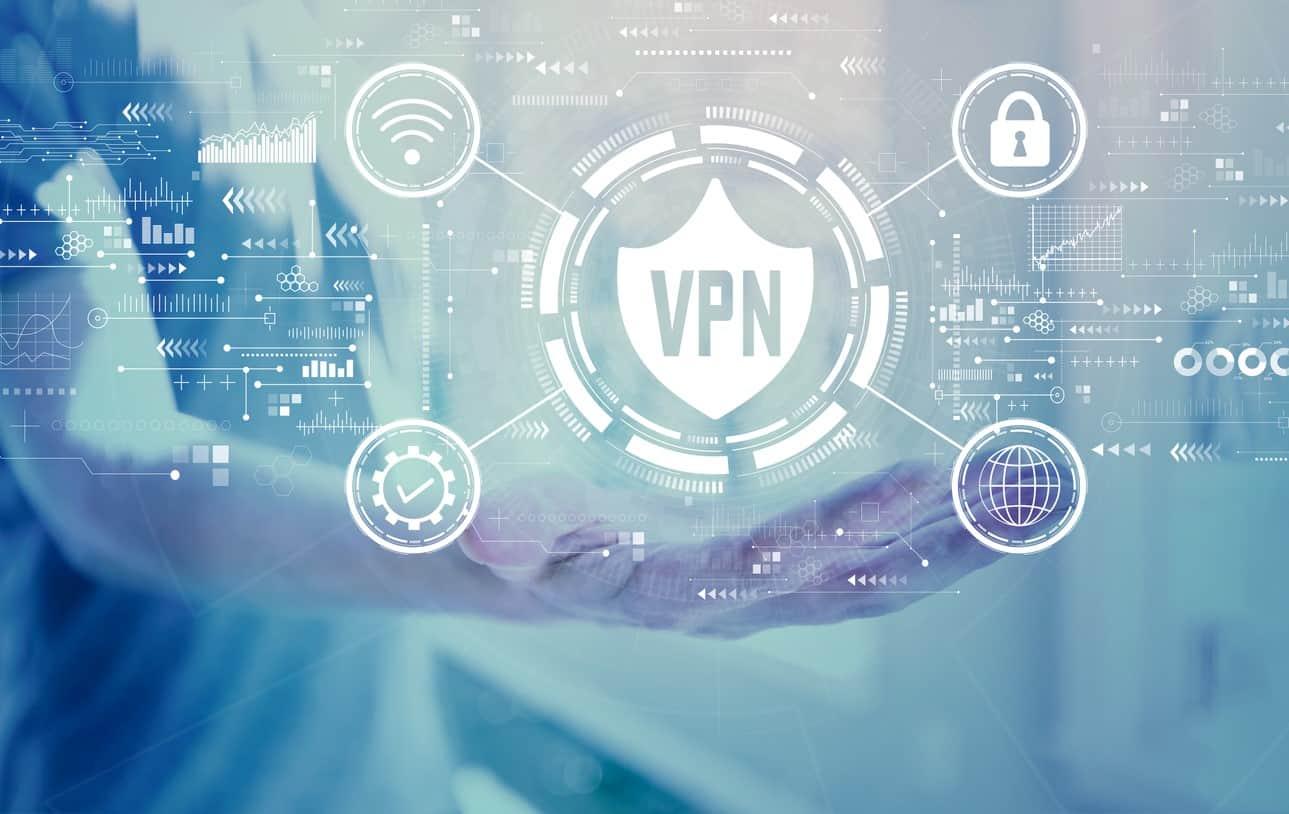Yes, a VPN can protect your data while traveling abroad by encrypting your internet connection. This ensures your online activities remain private and secure from potential cyber threats.
Traveling exposes you to new experiences and different cybersecurity risks, particularly when connecting to public Wi-Fi networks. A Virtual Private Network (VPN) serves as a critical tool for safeguarding your online data. It functions by routing your device’s internet connection through a secure server, hiding your IP address, and encrypting data transfers.
This encryption is vital for preventing cybercriminals from accessing sensitive information like passwords and bank details. Utilizing a VPN while abroad helps maintain your digital privacy, allowing you to browse with confidence. Ensuring you choose a reliable VPN provider is essential for maximum security and peace of mind on your travels.
The Role Of Vpns In Data Security
Traveling abroad can be thrilling, but data security should never take a back seat. A Virtual Private Network, or VPN, is a traveler’s best friend when it comes to protecting personal information. Let’s dive into how VPNs work to keep your data safe.
What Is A Vpn?
A VPN stands for Virtual Private Network. It creates a secure connection over the internet. Think of it as a private tunnel for your data. This tunnel hides your real location. It also encrypts your information. That means no one can see what you’re doing online.
How Vpns Enhance Privacy
VPNs enhance privacy in several ways:
- Encryption: They turn your data into a secret code. Think of a secret language that only your computer and the VPN understand.
- Masking Your IP: They give you a new IP address. It’s like wearing a disguise on the internet.
- No Logs: Good VPNs don’t keep records of your online trips. It’s like your internet history never happened.
By using a VPN, your private information stays just that—private. You can enjoy your travels without worrying about data thieves.
Travel And Cyber Risks
Travel and Cyber Risks – a significant concern for modern globetrotters. Data security becomes even more crucial as you step into new countries. Many travelers overlook the digital threats that lurk behind the allure of exotic destinations. Understanding these risks is the first step to protecting your sensitive information from prying eyes.
Unique Threats Abroad
When you travel, you face cyber threats not common in your home country. These can include:
- Targeted hacking attempts, as travelers are seen as easy prey.
- Surveillance by local governments, unfamiliar to foreign visitors.
- Scams exploiting tourists’ lack of local cyber knowledge.
Public Wi-fi Vulnerabilities
Public Wi-Fi networks are hotspots for data interception. They often lack robust security measures, making it easy for hackers to access your information. Common issues include:
- Unencrypted networks, allowing data to be read by others.
- Man-in-the-middle attacks, where hackers insert themselves between you and the connection point.
- Malware distribution, where compromised networks are used to install harmful software on your device.
Vpn Functionality Across Borders
Traveling abroad? A VPN could be your best travel buddy. It keeps your online data safe. But does it work the same everywhere? Let’s explore the functionality of VPNs across borders.
Geographical Limitations And Solutions
VPN works worldwide, but not all countries welcome it. Some places have digital borders.
- Some countries block VPNs.
- Others have strict online rules.
Good news is, quality VPNs find ways around. They use various servers across the globe. This helps you:
- Access blocked sites.
- Enjoy your favorite shows.
- Keep your data private.
Choose a VPN with many servers. Make sure it offers strong encryption.
Legal Considerations And Restrictions
It’s important to know the law. Each country has its own rules on VPN use.
For example:
| Country | VPN Policy |
|---|---|
| China | Limited |
| Russia | Restricted |
| USA | Permitted |
Before you travel, check the VPN laws of your destination. Use VPNs that respect the law. Stay informed, stay safe.
Data Protection While Traveling
Traveling abroad exposes your data to risks. Using a VPN can protect your information. Let’s dive into how a VPN secures your personal data while you’re away from home.
Encryption As A Shield
Encryption transforms your data into a secret code. Only someone with the right key can read it. A VPN uses strong encryption methods to safeguard your data. This keeps your online activities hidden from prying eyes. Whether you’re checking emails or browsing the web, encryption acts as a robust shield.
Sensitive Information Safety
Travel often involves sharing sensitive information online. This includes passport details, credit card info, and booking confirmations. A VPN keeps this sensitive data safe. It creates a secure tunnel for your data. This prevents cyber thieves from stealing your information.
- Secure your connections at public Wi-Fi spots.
- Keep your personal information private.
- Protect your online identity.
Always turn on your VPN before connecting to the internet in a new location. This simple step greatly enhances your data security while traveling.
Choosing The Right Vpn For Your Trip
Traveling opens up a world of adventure, but also potential data risks. A VPN can shield your data from prying eyes. Yet, not all VPNs offer the same protection. Selecting the right one is crucial. It ensures privacy and access to services from back home.
Key Features To Look For
Security is paramount when choosing a VPN. Here are essential features to consider:
- Encryption: High-level encryption keeps data unreadable to others.
- No-logs policy: This ensures your activity isn’t recorded or traceable.
- Server locations: A vast network means better speed and access.
- Device compatibility: Your VPN should work on all your devices.
- Customer support: Get help whenever you need it, wherever you are.
Top Vpn Providers For Travelers
Several VPN providers stand out for their reliability and features. Here are the top picks for travelers:
| Provider | Encryption | No-logs | Servers | Devices | Support |
|---|---|---|---|---|---|
| NordVPN | AES-256 | Yes | 5500+ | 6 | 24/7 |
| ExpressVPN | AES-256 | Yes | 3000+ | 5 | 24/7 |
| Surfshark | AES-256 | Yes | 3200+ | Unlimited | 24/7 |
Each provider offers unique benefits. NordVPN provides double encryption. ExpressVPN boasts fast speeds. Surfshark allows unlimited devices. Choose one that fits your travel needs best.
Setting Up Your Vpn Before Departure
Traveling abroad? Don’t forget to secure your online data! A Virtual Private Network (VPN) is a must. Set up your VPN before leaving. This guide walks you through the steps.
Installation And Configuration
Begin by choosing a reliable VPN service. Look for one with strong encryption and servers worldwide. Download the VPN app. Install it on your device. Follow these steps:
- Select a plan that fits your travel duration and needs.
- Create an account with your chosen VPN provider.
- Download the app onto your smartphone, tablet, or laptop.
- Install the VPN by following the in-app instructions.
- Open the app and log in with your new account details.
- Pick a server in a country you trust and connect to it.
Make sure your device auto-connects to the VPN when online. This keeps your data safe at all times.
Testing Your Vpn Connection
Don’t wait until you land to test your VPN. Do it before you leave. Here’s how:
- Connect to your chosen server.
- Check your IP address using an online IP checker.
- Ensure it matches the server’s country.
If the IP address is correct, you’re ready to go! If not, contact your VPN’s support team. Keep your data safe and enjoy peace of mind while traveling.
Potential Vpn Pitfalls
While VPNs are great for securing your data, they’re not perfect. Understanding the potential pitfalls helps you stay prepared. Let’s explore some common issues and troubleshooting tips.
Common Vpn Issues While Abroad
Traveling introduces unique challenges to VPN usage:
- Slow connection speeds due to distant servers.
- Blocked VPN services by some countries.
- Difficulty accessing local content while using a VPN.
These issues can affect your browsing and streaming experience.
Troubleshooting Tips
Here are some practical steps to overcome VPN challenges:
- Choose a VPN with servers near your travel destination for better speed.
- Use a VPN that offers obfuscation technology to avoid blocks.
- Toggle between different servers if you face access issues.
These tips ensure smoother, more reliable VPN performance while traveling.
Alternatives And Complements To Vpns
Traveling abroad often means venturing into unknown cyber territories. A VPN is a strong shield for your data, but not the only armor you can wear. Let’s explore other tools that work alongside VPNs to keep your information safe.
Additional Security Measures
Using a VPN is just the beginning. There are more steps to take to protect your data:
- Update your devices: Always install the latest security updates.
- Use antivirus software: It guards against malware and viruses.
- Enable firewalls: They act as a barrier between your device and threats.
- Two-factor authentication: Adds an extra layer of security.
- Encrypt your files: Keep your sensitive data locked away.
- Secure Wi-Fi connections: Use only trusted networks or your mobile data.
When Vpns May Not Be Enough
Sometimes, VPNs might fall short. Cyber threats are ever-evolving, and so should your defense:
| Limitation | Solution |
|---|---|
| VPN Blocks | Use stealth VPNs or switch servers. |
| Data Caps | Opt for a VPN with no data limits. |
| Legal Restrictions | Understand the country’s laws on VPN use. |
| Connection Issues | Have backup VPNs or offline maps and info. |
For ultimate security, combine VPNs with other tools. Stay vigilant, stay safe, and enjoy your travels without data worries.
Staying Secure Beyond Your Return
Travel often opens doors to adventure and new experiences. Yet, it’s crucial to keep those doors locked to digital threats, even after you return. A VPN shields your data abroad, but don’t let your guard down once home. Your data needs ongoing protection.
Post-Travel Data Protection StrategiesPost-travel Data Protection Strategies
Keep your devices and accounts secure after traveling. Here’s how:
- Change passwords for sensitive accounts.
- Ensure your VPN remains active on public Wi-Fi.
- Run antivirus scans to detect any lurking threats.
- Update software for the latest security patches.
- Review bank statements for any unauthorized transactions.
Maintaining Online Privacy At Home
Privacy isn’t just a travel concern. Protect your online activities at home:
- Use a VPN to encrypt your internet connection.
- Avoid oversharing on social media platforms.
- Secure your home Wi-Fi with a strong password.
- Turn off location services when they’re not needed.
- Stay wary of phishing emails and suspicious links.
Frequently Asked Questions
Should You Use A Vpn When Traveling Internationally?
Yes, using a VPN while traveling internationally enhances your online security and allows access to geo-restricted content.
Can I Use My Data Abroad With A Vpn?
Yes, you can use a VPN to access your data while abroad, ensuring privacy and bypassing geo-restrictions. Always check local laws regarding VPN use.
What Happens If You Use Vpn In Another Country?
Using a VPN in another country can mask your real location, making it appear as if you’re browsing from elsewhere. This can bypass geo-restrictions, access local content, and enhance privacy. Always check local laws, as VPN use can be restricted in some regions.
Do Vpns Really Protect Your Data?
Yes, VPNs protect your data by encrypting your internet connection and masking your IP address, enhancing online privacy and security.
Conclusion
Using a VPN while traveling abroad is a smart choice for safeguarding your personal data. It encrypts your internet traffic, shields your online activities, and enhances privacy. For best results, choose a reputable VPN provider. Remember, while VPNs offer significant protection, staying cautious online is also crucial.


Leave a Reply